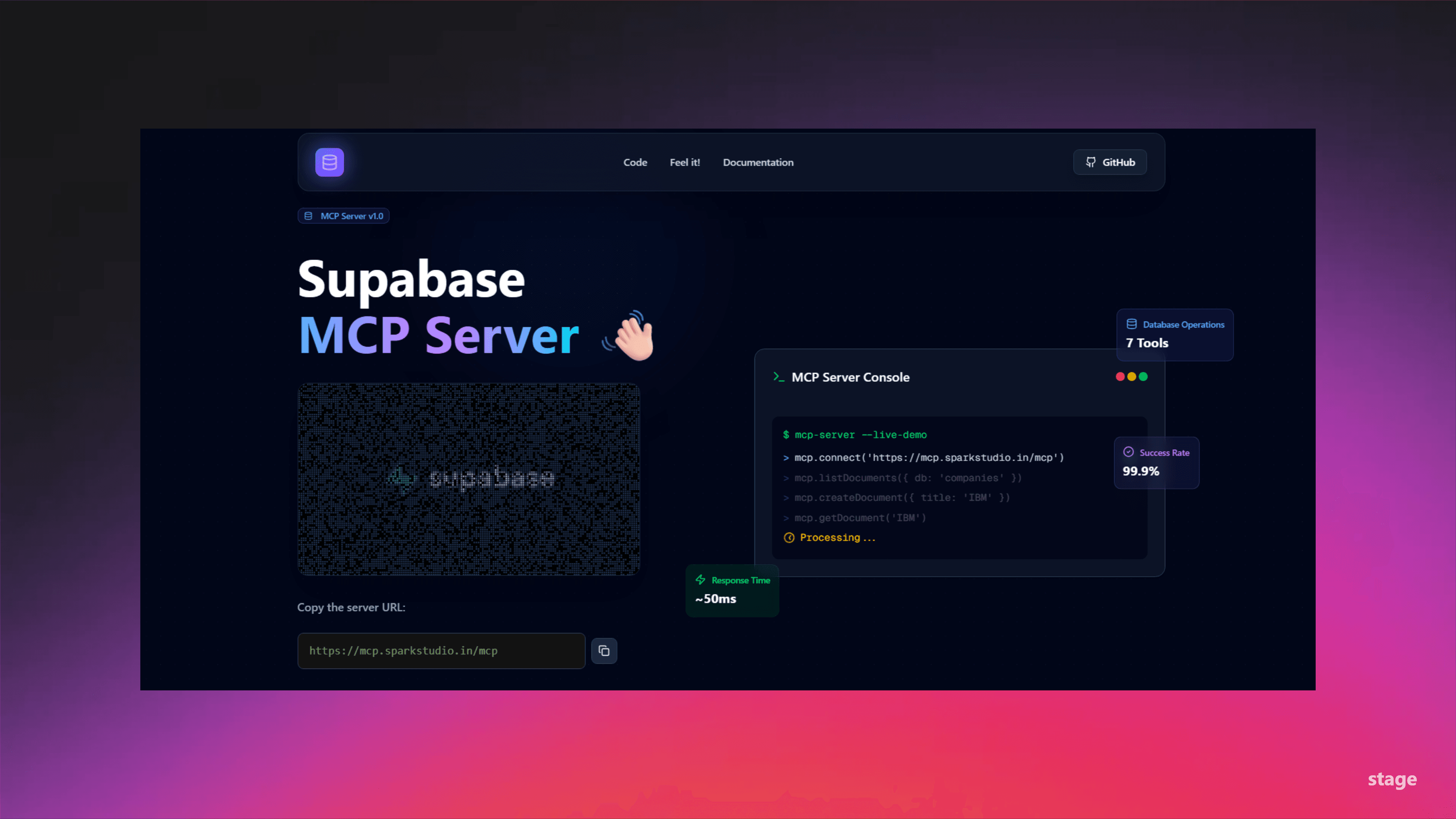
MCP Server
A lightweight, high-performance multiplayer coordination server for managing real-time sessions, plugins, and low-latency messaging.
Timeline
1 month
Role
Full Stack Engineer
Team
Piyush Dhoka
Status
CompletedTechnology Stack
Key Challenges
- Designing an extensible plugin system
- Maintaining low-latency real-time messaging
- Reliable session lifecycle management
- Scaling and state synchronization across instances
Key Learnings
- Realtime system architecture
- Plugin-driven extensibility patterns
- Efficient WebSocket and buffer handling
- Deployment and orchestration with Vercel
MCP Server
Overview
MCP Server is a lightweight, high-performance server designed to coordinate multiplayer sessions, plugin integrations, and real-time messaging. It focuses on extensibility, predictable session handling, and low-latency communication for multiplayer experiences and agent-driven workflows.
Features
- Robust session lifecycle management (create, join, leave, recover)
- Plugin system with lifecycle hooks and sandboxed execution
- Real-time messaging over WebSockets (low-latency events & broadcasts)
- REST API for administrative operations and health checks
- Connection and memory caching strategies for performance
- Designed for horizontal scaling and containerized deployment
Why I built this
I built MCP Server to simplify the backend complexity of multiplayer and multi-agent applications. Many realtime systems either overcomplicate session management or lock you into rigid architectures. MCP Server provides a flexible, plugin-first foundation so developers can focus on game logic, agent behavior, or feature integrations without rebuilding the coordination layer.
Notable technical decisions
- Plugin-first architecture: lets teams add features (auth, matchmaking, analytics) without touching core code.
- WebSocket-based real-time transport with efficient buffer/stream handling for media or state diffs.
- Caching and memory strategies to reduce latency and improve reconnect behavior.
- Container-friendly deployment model to run distributed instances behind load balancers.
Current status & next steps
Active development: core session handling and plugin APIs are implemented and being hardened. Next steps include end-to-end integration tests, documentation for plugin authors, and a small demo client to showcase common flows (matchmaking → session → real-time sync).
Links
- Source code: https://github.com/piyushdhoka/mcp_server
- Live: https://mcp.sparkstudio.co.in/
